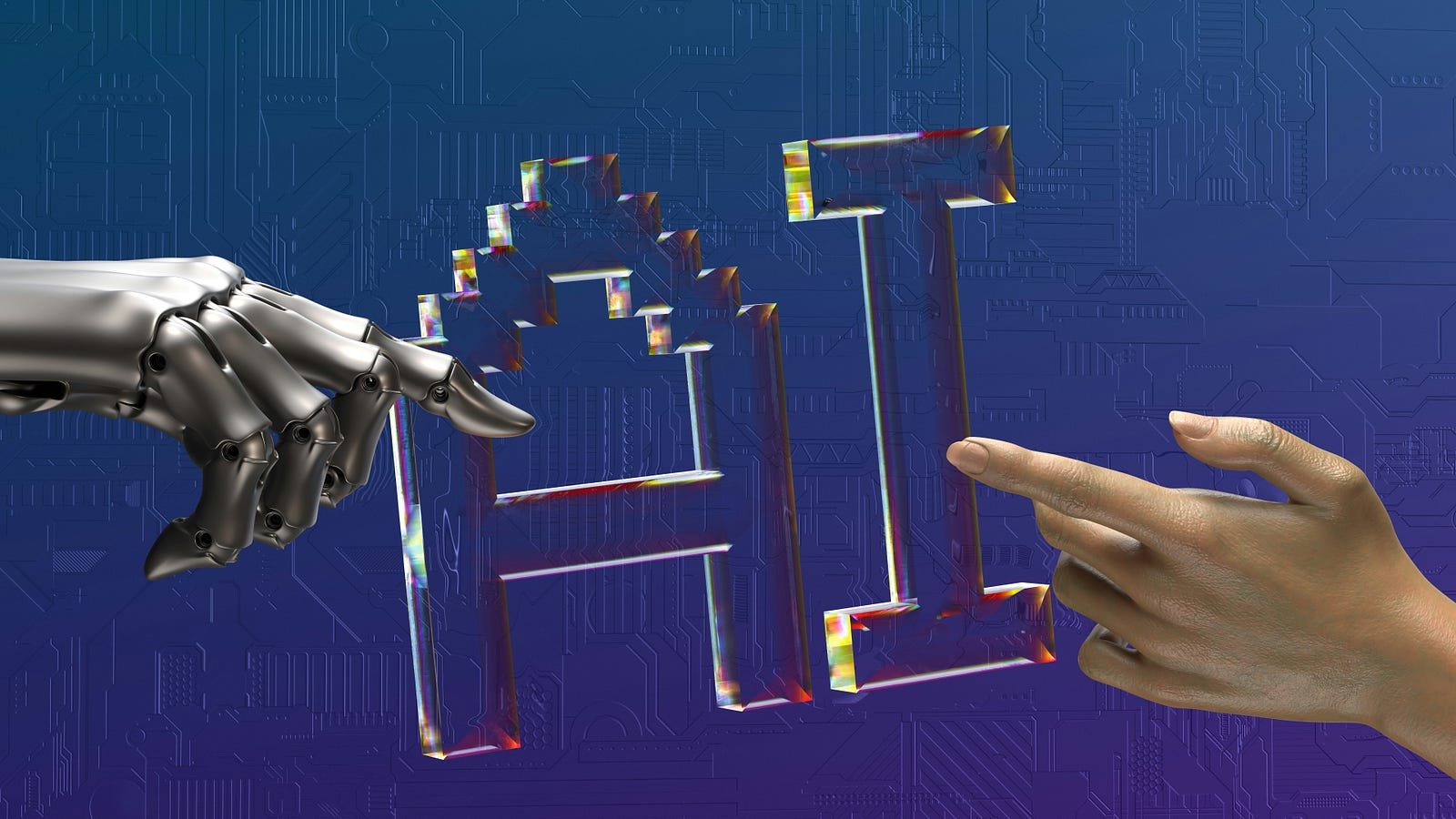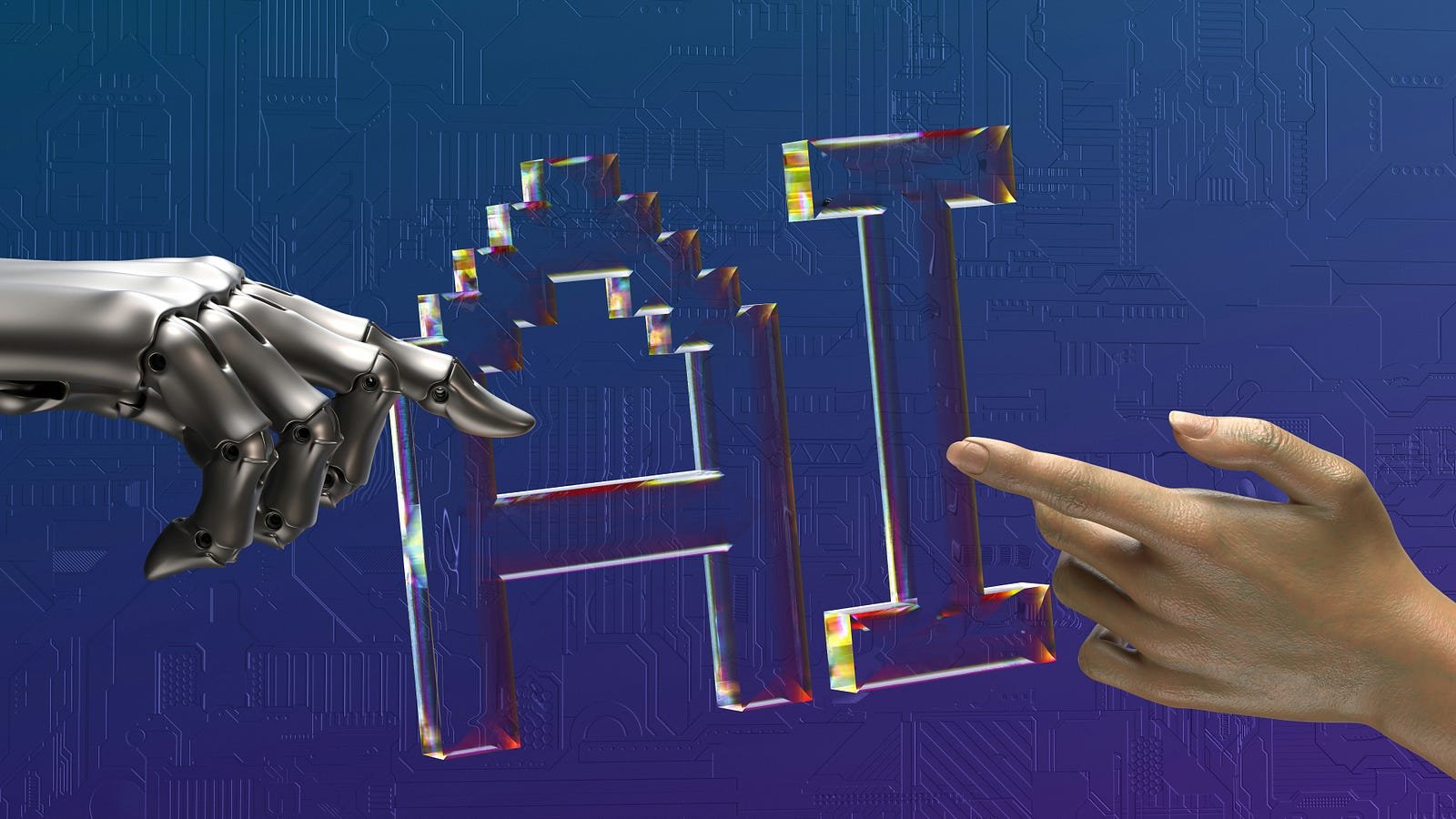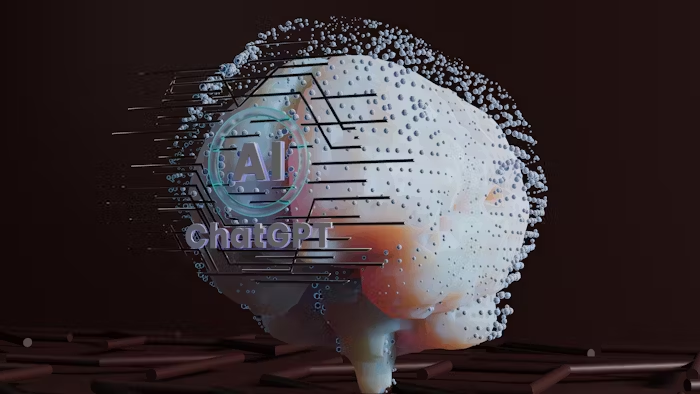Artificial Intelligence (AI) is no longer just a futuristic concept. It is revolutionizing various sectors, from healthcare and finance to education, unlocking new opportunities and reshaping traditional processes. In this article, we’ll explore how AI is transforming these industries and the immense benefits it offers.

AI in Healthcare: Revolutionizing Patient Care and Medical Research
The healthcare industry is one of the primary beneficiaries of AI’s capabilities. From enhancing diagnostic accuracy to streamlining administrative tasks, AI is driving a healthcare revolution. Here are the key areas where AI is making an impact:
1. AI for Diagnosing and Treating Diseases
AI-powered diagnostic tools are becoming more adept at detecting conditions like cancer, heart disease, and neurological disorders. By analyzing medical images (such as X-rays, MRIs, and CT scans), AI algorithms can quickly spot abnormalities that might be missed by human doctors. This enables faster, more accurate diagnoses, which can significantly improve patient outcomes.
Example: IBM’s Watson Health uses AI to analyze clinical data and recommend personalized treatment plans for cancer patients, enhancing precision in oncology.
2. AI-Driven Personalized Medicine
AI is enabling the development of personalized treatment regimens. By analyzing a patient’s genetic information, lifestyle data, and medical history, AI can predict the most effective treatment options, reducing trial-and-error approaches and improving recovery rates.
3. Automating Administrative Tasks
Healthcare systems often face administrative bottlenecks. AI helps automate scheduling, billing, and patient data management, freeing up valuable time for healthcare professionals to focus on direct patient care.
Example: AI-driven chatbots can assist with patient inquiries, appointment scheduling, and medication reminders, improving the efficiency of medical practices.
AI in Finance: Enhancing Efficiency, Security, and Decision-Making
The financial industry has seen a significant shift thanks to AI. From risk assessment to fraud detection, AI is transforming financial institutions’ ability to manage operations and serve customers better. Let’s take a closer look at how AI is reshaping finance:
1. Fraud Detection and Risk Management
AI algorithms are equipped to analyze vast amounts of data in real-time, helping financial institutions detect fraudulent activities and manage risks more effectively. By studying transaction patterns, AI can flag suspicious activities much faster than traditional methods, preventing fraud before it happens.
Example: Major banks like JPMorgan Chase are using AI to detect patterns of unusual behavior, ensuring that transactions are safe and secure.
2. AI in Algorithmic Trading
AI is heavily utilized in algorithmic trading, where machines analyze market trends, identify patterns, and execute trades at high speeds. By removing human bias and emotion, AI ensures that trades are based on data-driven decisions, leading to more efficient markets.
Example: Hedge funds and investment firms are using AI to predict stock movements, allowing for better decision-making in real-time.
3. Personalized Banking Experiences
AI chatbots are being used by banks to provide customers with personalized financial advice, answer queries, and offer tailored product recommendations. These AI-driven solutions improve customer satisfaction by providing real-time, efficient support 24/7.
Example: Bank of America’s “Erica” is a virtual assistant powered by AI that helps customers manage their finances, offering everything from balance checks to bill payments.
AI in Education: Enhancing Learning and Administrative Efficiency
Education is another industry greatly benefiting from AI technologies. From customized learning experiences to streamlining administrative duties, AI is improving the way we teach and learn. Here’s how AI is transforming education:
1. Personalized Learning Experiences
AI enables the creation of personalized learning paths for students. By analyzing individual performance, AI can adapt lessons to suit the specific learning pace and style of each student. This helps educators address the needs of diverse learners more effectively.
Example: Platforms like Coursera and Khan Academy use AI to offer personalized course recommendations based on a student’s previous activity and learning preferences.
2. Automating Grading and Administrative Tasks
AI-driven tools are automating routine administrative tasks like grading assignments, freeing up teachers to focus on interactive teaching. This leads to more time for student engagement and innovative teaching methods.
Example: Grading tools powered by AI can assess multiple-choice questions, essays, and even short answers, offering quick feedback to students.
3. AI Tutors and Virtual Assistants
AI-powered virtual tutors are revolutionizing after-school learning by providing instant feedback to students outside of classroom hours. These AI assistants can answer questions, offer explanations, and even provide hints to guide students through complex problems.
Example: AI-powered platforms like Duolingo help users learn new languages by providing tailored lessons and interactive quizzes based on their progress.
Challenges and Ethical Considerations of AI Adoption
While AI offers transformative potential across industries, it’s important to address some of the challenges and ethical concerns:
1. Data Privacy and Security
As AI systems handle vast amounts of sensitive data, ensuring data privacy and security is paramount. Industries like healthcare and finance need to adhere to strict regulations like GDPR and HIPAA to safeguard user information.
2. Job Displacement
The rise of AI-powered automation could lead to job displacement, especially in industries like manufacturing, finance, and retail. It’s essential to reskill workers and prepare them for new roles in AI-driven economies.
3. Bias and Fairness
AI algorithms are only as good as the data they are trained on. If data is biased, AI systems could inadvertently perpetuate discrimination. Ensuring that AI models are fair and transparent is a critical challenge that must be addressed.
The Future of AI Across Industries
AI’s impact on industries such as healthcare, finance, and education is only beginning to be fully realized. As AI continues to evolve, its applications will expand, offering even more powerful tools for enhancing efficiency, improving customer experiences, and driving innovation.
What’s Next?
As industries become more AI-driven, collaboration between businesses, tech developers, and governments will be essential to ensure responsible adoption. Training workers, updating policies, and addressing ethical concerns will be vital to maximizing AI’s benefits while minimizing its risks.
Embracing AI for a Better Future
AI is transforming industries in profound ways, driving innovation, improving efficiency, and enhancing customer experiences. By embracing AI, industries like healthcare, finance, and education can unlock new possibilities, improving lives and driving economic growth. However, it’s important to ensure that AI adoption is handled responsibly, with a focus on transparency, fairness, and data security.
If you’re looking to stay ahead of the curve, it’s essential to learn how AI can revolutionize your industry. Start exploring AI solutions today and unlock new opportunities for growth, efficiency, and innovation.










